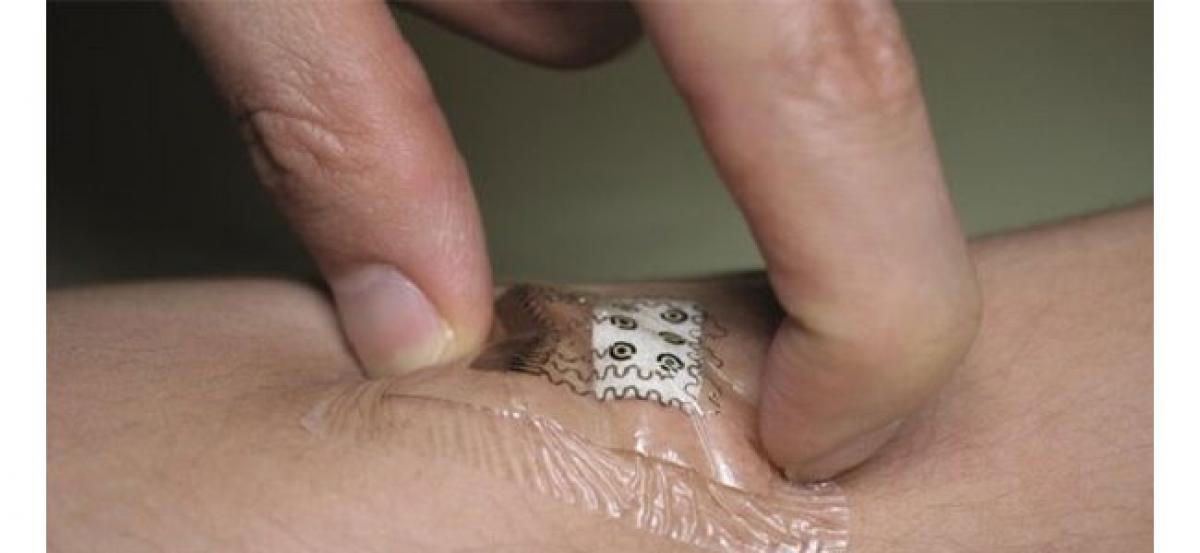Live
- Representatives of VIDASAM demand resignation of YSRCP MLAs
- Police grill BRS leader Jaipal Yadav
- Revanth sells 6Gs to woo voters in Maharashtra
- Cong govt striking balance between welfare, devpt
- OU students stage protest over food poisoning
- Cops sexually assaulted women in Lagacharla, alleges Rathod
- Flight services up from Vijayawada, Vizag airports
- Kishan Reddy has not brought a single rupee for TG from Centre: Ponnam
- Manipur on edge
- Girl student jumps to death from 4th floor of hostel
Just In

Scientists have developed a skin patch that can deliver drugs to regulate blood sugar in diabetics for days at a time, potentially putting an end to the need for painful daily injections and needle pricks.
Washington: Scientists have developed a skin patch that can deliver drugs to regulate blood sugar in diabetics for days at a time, potentially putting an end to the need for painful daily injections and needle pricks.
For millions of people with type 2 diabetes, ongoing vigilance over the amount of sugar, or glucose, in their blood is the key to health. A finger prick before mealtimes and maybe an insulin injection is an uncomfortable but necessary routine.
Researchers from the National Institute of Biomedical Imaging and Bioengineering (NIBIB) in the US have devised a biochemical formula of mineralised compounds that interacts in the bloodstream to regulate blood sugar for days at a time.
In a study performed with mice, researchers showed that the patch of dissolvable microneedles can respond to blood chemistry to manage glucose automatically.
"This experimental approach could be a way to take advantage of the fact that persons with type 2 diabetes can still produce some insulin," said Richard Leapman, NIBIB scientific director.
"A weekly microneedle patch application would also be less complicated and painful than routines that require frequent blood testing," said Leapman.
Insulin is a hormone made in the pancreas and secreted into the bloodstream to regulate glucose in response to food intake. It is needed to move glucose from the bloodstream into cells where the sugar can be converted to energy or stored.
In type 1 diabetes, usually diagnosed in children and young adults, the body does not make insulin at all. Type 2 diabetes, which can be diagnosed at any age but more commonly as an adult, progressively lessens the body's ability to make or use insulin.

© 2024 Hyderabad Media House Limited/The Hans India. All rights reserved. Powered by hocalwire.com







